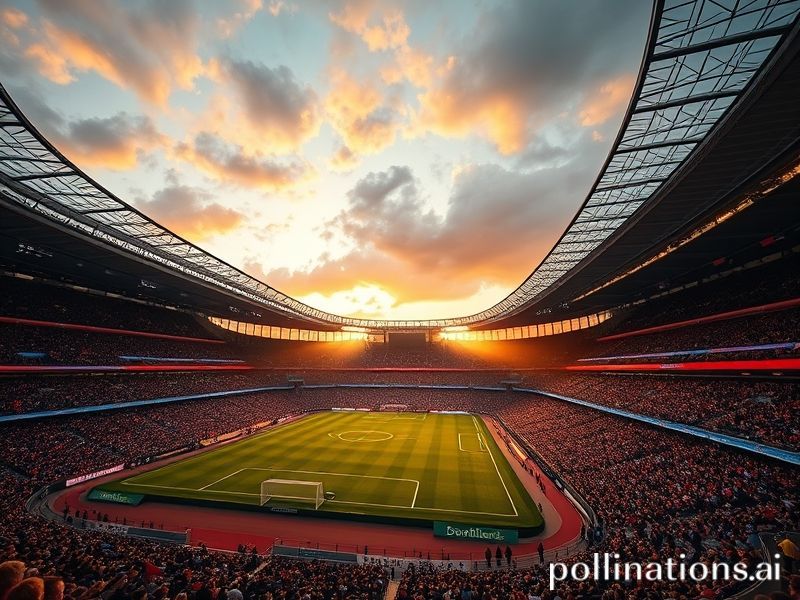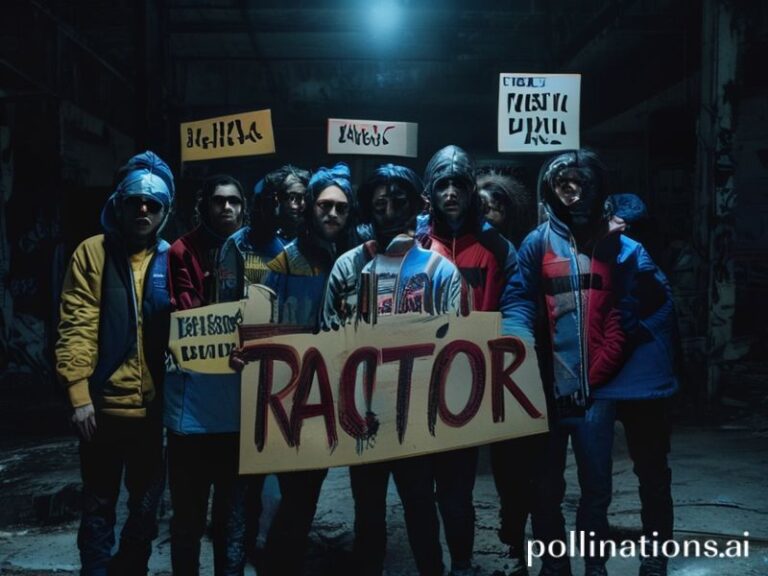West Ham: How a Cockney Football Club Became a Global Metaphor for Late-Capitalist Angst
West Ham and the Decline of Western Civilisation: A Dispatch from the Olympic Stadium’s Third Tier
London, 2024 – Somewhere above the floodlights, in the thin alpine air of the London Stadium’s upper ring, a man in a knock-off Corinthians shirt is explaining to his eight-year-old why bubbles still matter. Below them, West Ham United—once the cheeky Cockney cousin of English football, now majority-owned by Czech mining money and emotionally leveraged by a fan base that oscillates between gallows humour and outright rage—are busy reminding the planet that late-stage capitalism can, in fact, be kicked into row Z.
From Bogotá betting shops to Singaporean crypto-discords, the Hammers have become a reliable punch-line for the global sports-industrial complex: the club that left its spiritual home for a taxpayer-funded athletics arena it never asked for, yet somehow still contrives to feel like the scrappy underdog. It is a neat trick, the geopolitical equivalent of moving into a palace and complaining the chandeliers are too bright.
The international significance? Start with soft power. When Declan Rice—now Arsenal’s midfield metronome, but once the boy from Kingston who drank in the same pubs as the fans—was flogged for £105 million last summer, the transaction rippled through foreign-exchange reserves from Abu Dhabi to Akron. The fee helped balance West Ham’s books, underwrite a Brazilian winger who looks permanently surprised by rain, and reaffirmed the Premier League’s role as the world’s most ostentatious balance-of-payments mechanism. Somewhere in the IMF’s basement an intern is updating a spreadsheet titled “UK Services Export: Volatile Moods of East London”.
Then there is the stadium itself, that post-Olympic white elephant turned multi-purpose migraine. Designed for Usain Bolt’s 9.63-second cameo, it is now retro-engineered weekly to accommodate 62,000 people who mainly want to sing about bubbles and the 1966 World Cup. The running track remains, a moat of blue polyurethane that keeps the ultras far enough away to prevent pitch invasions but close enough to hurl creative invective at the away end. UNESCO officials touring legacy sites have been known to weep softly into their lanyards.
Globally, the arrangement has become a cautionary tale for every city council flirting with an Olympic bid. Brisbane 2032 delegates recently visited, notebook in hand, and left muttering about “optimistic depreciation schedules” and “the Hammers Paradox”: how to gentrify a neighbourhood without accidentally gentrifying the soul. Meanwhile, in the Bronx, New York City FC executives study West Ham’s ticketing algorithm like Talmudic scholars, praying their own Yankee Stadium time-share never becomes a decade-long identity crisis.
Yet for all the cynicism, West Ham remain weirdly magnetic. In Lagos traffic jams you’ll see faded Tevez shirts; in Manila call-centre break rooms, grainy YouTube compilations of Paolo Di Canio’s volley against Wimbledon still buffer on repeat. Supporting West Ham is the sporting equivalent of smoking: you know it will end badly, but the communal ritual is irresistible, and the packaging has a retro charm no surgeon-general’s warning can quite kill.
The club’s women’s side, freshly crowned European champions, add another layer of geopolitical irony. Their success is bankrolled by the same ownership group that can’t quite figure out how to stop the men’s team from conceding set pieces like it’s 1944 and the Luftwaffe is overhead. If sport is indeed a mirror for society, then West Ham reflects a Britain simultaneously progressive and parochial, globalised yet nostalgic, minting money while moaning about the price of beer.
As I descend the vertiginous stairs—pausing to let a steward confiscate a thermos of contraband rum—I overhear two tourists from Seoul debating whether David Moyes is a tactical genius or merely a man who has read Sun Tzu once and taken it far too literally. The answer, like the bubbles drifting across the East Stand, will disperse before it ever lands. But somewhere in that evanescence lies the broader significance: in an age when nations weaponise nostalgia and weaponry alike, West Ham remain a harmless, mildly profitable way for the world to remember that every empire—athletic or otherwise—eventually ends up arguing about the acoustics in its own mausoleum.
The final whistle blows. The crowd files out, past souvenir stalls hawking half-price “UEFA Conference Winners 2023” mugs already yellowing in their shrink-wrap. Outside, the Stratford skyline twinkles with the promise of more luxury flats no one local can afford. A child releases one last bubble. It rises, catches the floodlights, and pops somewhere over the Thames, just another small, spherical metaphor for the end of history.







